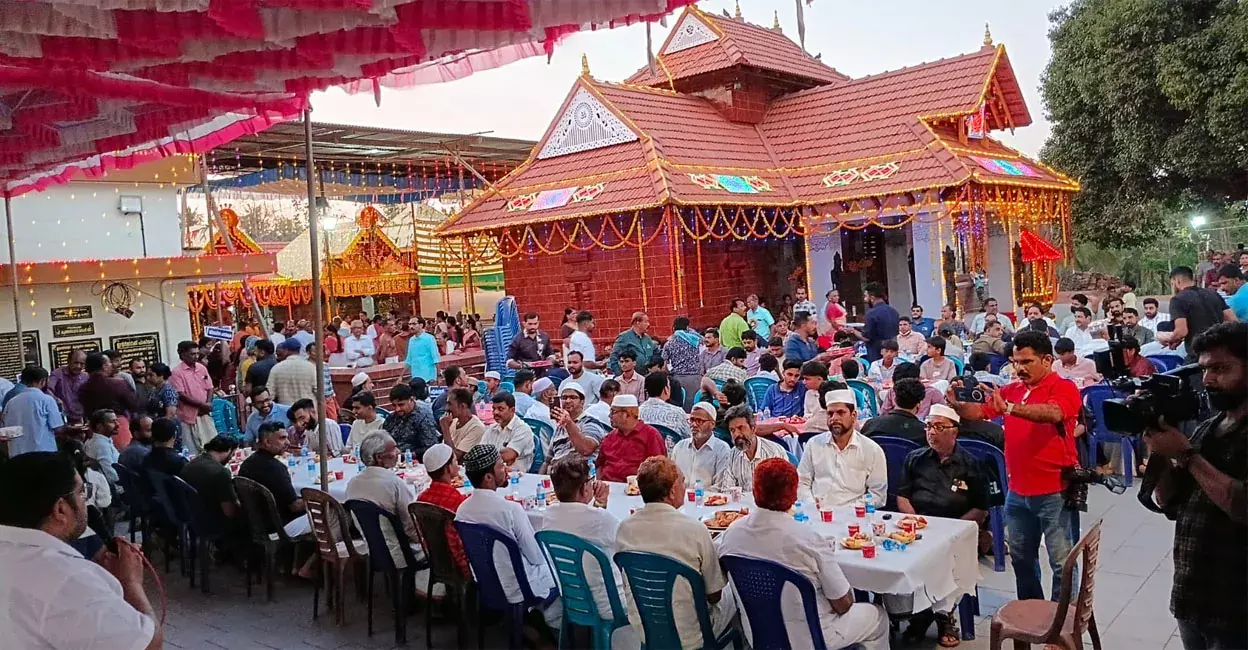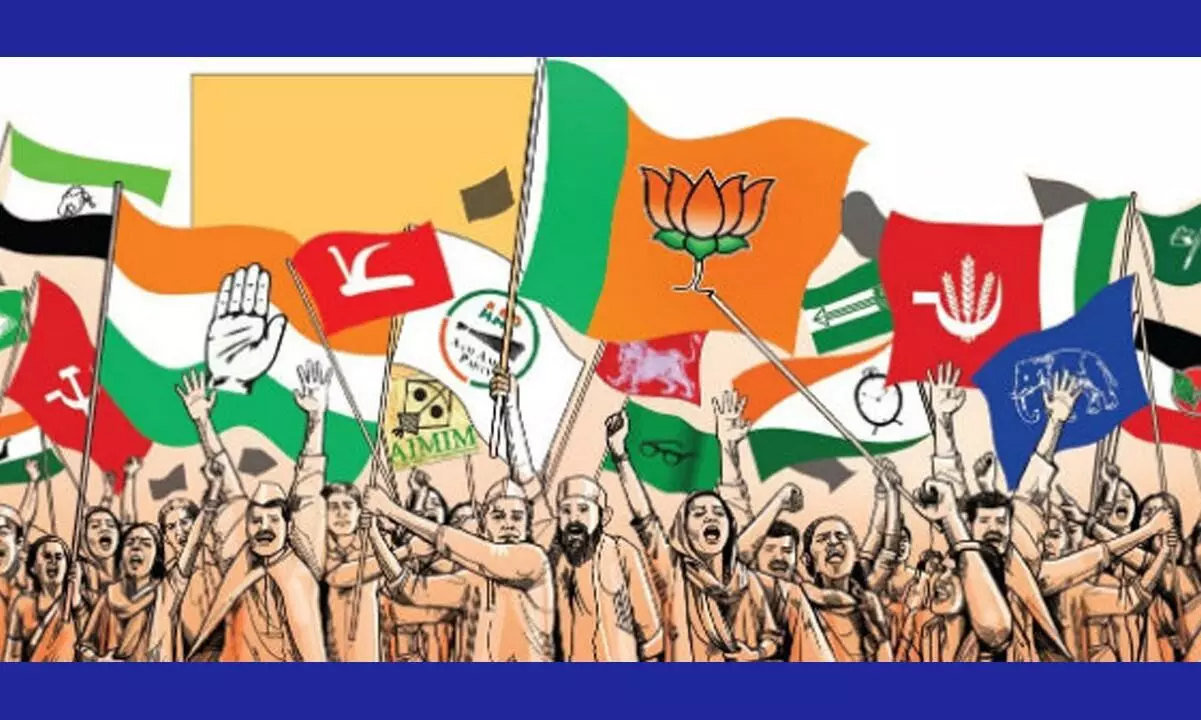
Whither non-BJP politics?
text_fieldsRepresentational Image Only / Image Courtesy : https://theasiadialogue.com
Quoting Jawaharlal Nehru, Mani Shankar Aiyar, senior Congress leader and ideologue wrote in the Hindu of Thursday, "Majority communalism is worse than minority communalism. That is what we should be telling the saffron brotherhood today rather than competing with them to determine who is more Hindu…. We should be asking instead: who is more secular, the congress or the BJP? We are trying to usurp their space. We would be better advised to fight for our own principled Ídea of a sescular India' whatever the perceived electoral cost."
Events unheard of in India's political history have been happening. A state ceases to be a state overnight; instead two centrally administered territories come into being. Both happened on 5 August last year. But on the first anniversary of that disrupting step, the BJP is moving ahead with its agenda giving no respite to remember that and by laying the foundation of Ram temple. Perhaps on 5 August next year, they may announce a uniform civil code, as anyone observing the BJP's systematic and gradual manner of executing its agenda is prompted to guess. Viewed in another perspective, the party is making steady success in clinching its deal meticulously.
The rulilng part is furthering its political interest without leaving room for any mistaking by anyone. However, when it comes to the question of the future of non-BJP politics, even the parties concerned are unable to find an answer themselves - the new feature of Indian politics. An illustration of cluelessness of the main Opposition party Congress about what they are doing, or have to do, is the series of statements made by Congrss leaders about the Ram temple construction. As Mani Shankar aiyar indicated, there are enough number of leaders who deem it fit to toe the BJP's Hindutva line of politics. But they lose sight of the fact that when the BJP is already there with its dense ingredient of Hindutva, there is little for the Congress to gain. This path of the Congress will only result in gifting its rank and file and voters to the BJP on a platter. On the reverse, if they decide to take on Hindutva politics face to face, they are scared of losing the majority community's votes. The case of the left is still more curious. Their stance amounts to producing every cultural element for the growth of Hindutva and at the same time opposing the Hindutva party politically. In the process, they too fail to ponder who will benefit from this.
The biggest crisis felt by non-BJP politics of India is its lack of political imagination. Without evolving a new political vision, they cannot overcome this obstacle. The chief platform on which non-BJP parties should position themselves is of challenging the BJP's centralised, highly muscular and monolithic nationalistic narrative. One of the cleverly executed plans being pushed forward since Narendra Modi's ascension to power is to gradually erode the rights of the states. And the party does not do this by overtly declaring that they are gradually taking away states'powers, but by reducing the relevance of states through fancy projects. The main streak running through the Centre's reforms, right from GST to the most recent National Education Policy (NEP), is a concept of an all-powerful centre and states sans rights.
However, opposition parties unfortunately fail to see through this strategy. In other words, because they try to emulate the nationalistic approach of the BJP, they lose the ideological stamina to resist it. And this is where regional parties become more relevant. Regional parties do wield considerable influence in Tamil Nadu, Andhra, Telengana, Maharashtra, Odisha, Bihar, West Bengal and North eastern states. In many of them, they are the ruling parties capable of energising a political philisophy where sub-national identities can win their due recognition. National parties like the Congress should be able to develop their own politics through engagements with such political entities. Two major forces that can offer the strongest defence at the national level against the sangh parivar politics, are Dalits and Muslims. However, because of its inability to wriggle out of the well-entrenched savarna leadership, the Congress is incapable of mustering the striking power of this political stream or to integrate them. If formed, such a collective will be the most robust political front that can be raised against BJP politics. And the truth is that without re-inventing its political imagination in concert with a social alliance including Dalits and Muslims, the opposition will not be able to make much headway. As a beginning, they should at least realise that there is nothing to gain by copying BJP.























